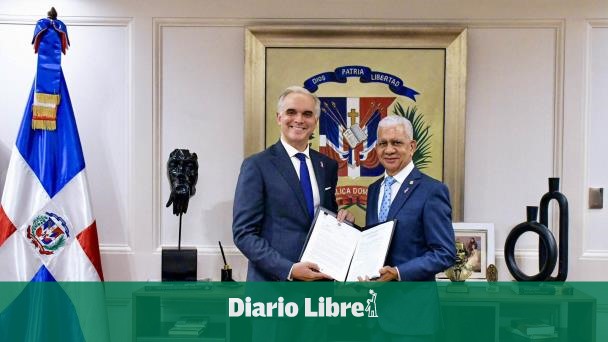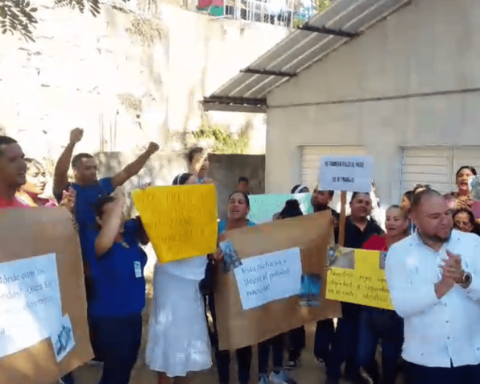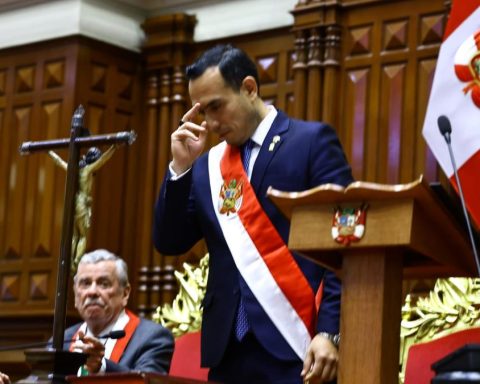After 32 years of validity, the Dominican authorities seek to modify the Labor Code with the bill of modernization and update deposited yesterday in the Senate of the Republic in an attempt to “expand rights and improve relations between workers and employers.”
Luis Miguel From Camps, minister of laborwhen delivering the project in the Senate, indicated that what he is depositing in the Congress It is the product of consensus between workers and employers.
“Now it’s up to the Congress make what was agreed a reality and generate the modification of this law, which is more than 30 years old, to provide the country with modern regulations in line with the expectations of workers and employers,” highlighted the official.
De Camps said that the layoff was not touched on in the initiative and that the piece was not rushed, as the business sector alleges. However, the Employers’ Confederation of the Dominican Republic (Copardom) considered the presentation of the draft labor reform by the Ministry of Labor in a situation where the Congress National is immersed in constitutional and fiscal reforms and will know the General Budget of the Nation for 2025.
Laura Peña Izquierdo, president of Copardom, also said that one of the key points for Copardom is the modification of the unemployment regime.
He assures that the current regime reduces the competitiveness of companies, limits their development opportunities, slows down the increase in salaries and the generation of formal jobs, especially in micro and small businesses, where the impact of the layoff can put the survival of the productive unit at risk.
Regarding the project, which was sent to a committee in the Senate, he explained that, although the business entity recognizes and values the tripartite dialogue that took place in the Labor Advisory Council, Copardom insists on the need to achieve a balance between modernization of labor laws and the protection of workers’ rights. He stated that the Employers’ Association focused its proposals on three main axes: procedures, working hours and costs derived from the employment relationship.
“These are crucial to update outdated labor legislation and restore competitiveness to Dominican companies, allowing them to achieve higher levels of efficiency in an increasingly competitive market,” he said.
Prudence
The executive vice president of National Council of the Private enterprise (Conep), César Dargam, made “a call for prudence and moderation”, considering that we are “in an environment quite loaded with issues of national interest.” “For more than a decade, multiple efforts have sought the long-awaited reform. We recognize important progress at this stage. But, what need is there, at this precise moment, to rush something of this dimension, with a real possibility of larger agreements?” Dargam highlighted in a thread on the social network X.
Abinader’s warning
On August 26, when he presented the proposal to the society, the president of the republicLuis Abinader, maintained that the project was born from social dialogue tripartite that has been running for more than two years.
“We think in a week we will deposit it in the Congress. There is a lot of progress, positive progress for both sectors, if consensus is not reached in that week, then it will remain for another reform, but we will deposit it in a week, in about 10 days,” the president warned in LA Semanal.
The Industrialists
Also, the Industry Association of the Dominican Republic (AIRD) reacted to the deposit of the bill of modernization and update of Labor Code. “The industrial sector represented in our union considers that the time has come to adapt the issue of unemployment aid to the current context, aware that this figure, in its current format, constitutes a brake on the generation of formal jobs in our economy,” argued Mario Pujols, executive vice president of the AIRD.
Omar Fernández also joined the call for prudence, senator for the National District, People’s Force Party. “It is inevitable to observe the inadequate pace with which these reforms are being presented, which, due to their level of importance, require time for their analysis, debate and study. I reiterate the call for prudence. I continue to think that haste is a bad advisor and enemy of the good results,” he noted.
Paternity leave
The Labor Code Modernization project proposes adding two more days to employees who request leave for the birth of a child, modifying the provisions of article 54 of Law 16-92.
Vacation
Under the new proposal, after a period of continuous employment of three years or more, the employee would be entitled to 15 working days of paid vacation.
The current Labor Code establishes that after continuous work of no less than one year nor more than five, 14 days of ordinary salary correspond and after continuous work of no less than five years, 18 days of ordinary salary. New proposal:
· Fourteen (14) working days with salary, after continuous work of one year and less than three years.
· Fifteen (15) working days with salary, after continuous work of three years or more, and less than five years.
· Fifteen (15) working days, with eighteen (18) days of salary, after continuous work of five years or more.
Telecommuting
The proposal includes the regulation of teleworking, a work modality that responds to current market needs. To carry out teleworking, the parties must agree on the forms and conditions under which the work will be carried out, specifying whether it will be totally or partially.
Domestic workers
The project establishes that the rights established in the new Code regarding paid rest, days declared non-working by the Constitution or the laws, apply exclusively to the domestic worker. Also, to annual vacations, salary, minimum wage, Christmas salary, maternity protection, vocational training, training and testing of the contract, its modalities and the suspension of its effects.
The proposal highlights that the provisions of articles 80 et seq. of the Labor Code do not apply to domestic work contracts. This is what is related to unemployment.

















